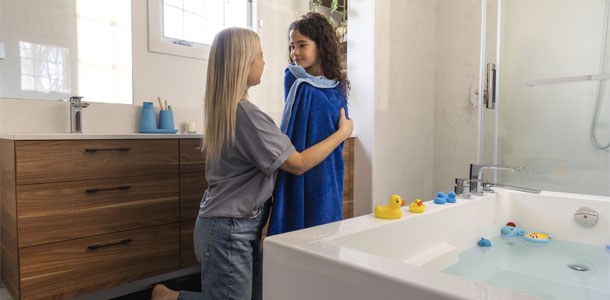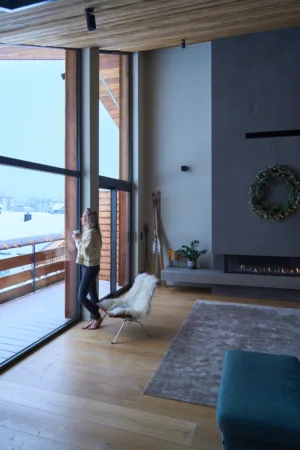Space heating
Here are some tips to help reduce your energy loss during the winter season.
1. Use a smart thermostat to manage the ambient temperature
A smart thermostat is an effective way to better control your energy consumption. The mobile app makes it easy to program and set target temperatures based on when your home is occupied. Smart thermostats significantly reduce temperature fluctuations, providing greater comfort. They also help you save energy—typically between 7% and 10%—for a relatively small investment. Check out our grant for purchasing a smart thermostat and conditions.
2. Avoid unnecessary heating
Lower the temperature at night and when no one is home. If you have a smart thermostat, the mobile app makes it even easier to program your preferred temperatures and times.
Our recommendations to optimize your energy consumption:
- During the week, lower the temperature by 2 to 3 degrees at night and when no one is home.
- On weekends, keep the temperature at 20°C between 6 a.m. and 11 p.m. to ensure comfort for your family.
To retain heat, close curtains, blinds or shades at night and when no one is home. Open them during the day to take advantage of natural sunlight.
3. Ceiling (destratification) fans
Cold air and warm air have different densities above ground, and if they are not mechanically mixed in some way, they will produce stratification (ie different layers of temperature). Warm air rises and reaches the highest temperature near the ceiling, especially in rooms with high ceilings. Installing ceiling fans of a minimum clearance of 8 ft. gold 2.43 m. to redistribute warm air is a budget-friendly solution.
4. Eliminate obstacles
If you have a forced-air system, remove any obstacles in ducts, registers and cold-air return registers so that the air can circulate freely and efficiently throughout the system.
5. Schedule annual preventive maintenance
A well-maintained heating system is more efficient and uses less gas to heat your home. Call on our Énergir Partner network or a qualified contractor for annual maintenance and occasional inspections of your equipment’s exhaust ducts, both inside and outside, to detect signs of condensation or corrosion. Find all our maintenance tips.


